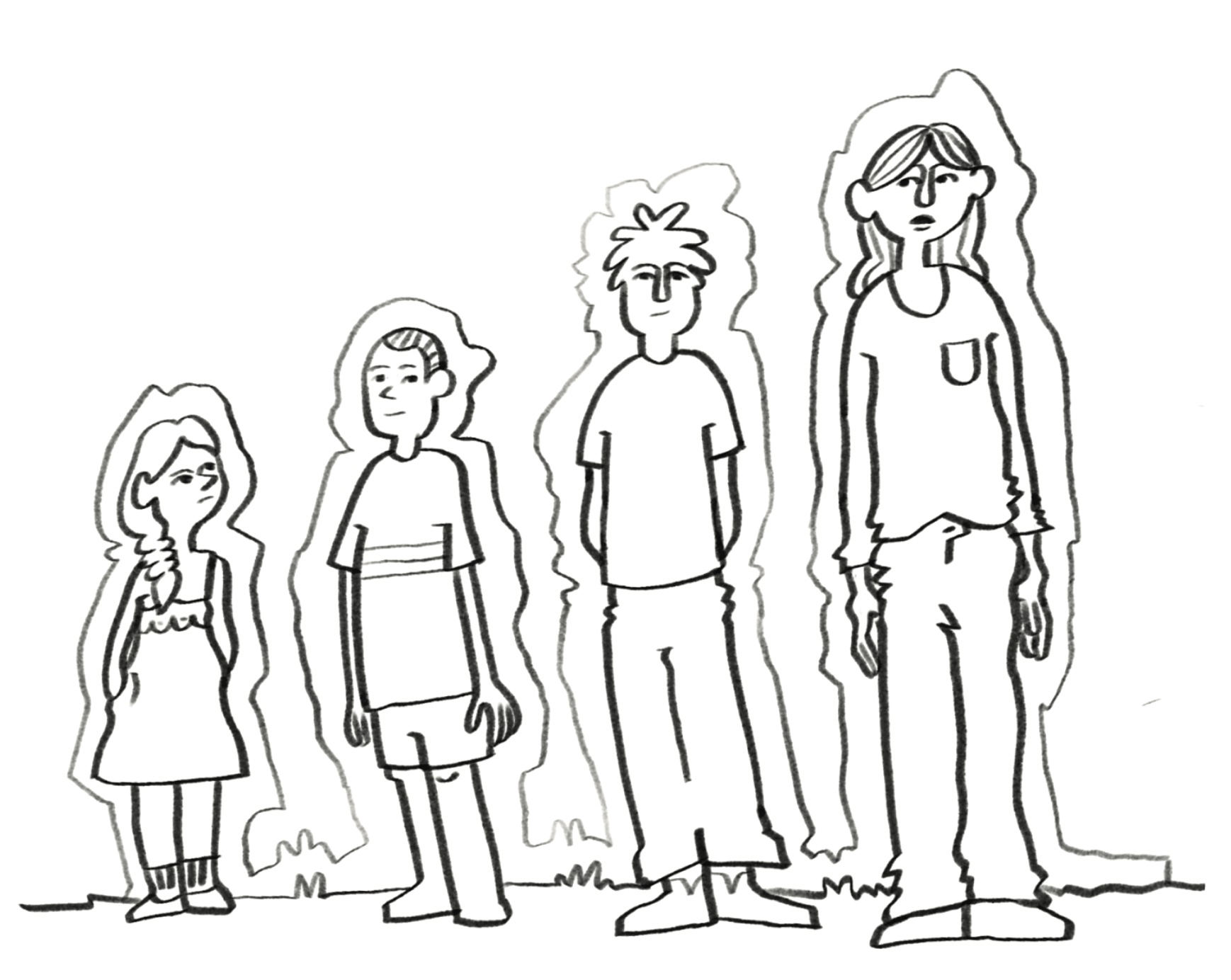Birth order and my starting four
October 16, 2025
 This
piece represents the opinion of the author
.
This
piece represents the opinion of the author
.
 Celeste Mercier
Celeste MercierI’ve always wondered if birth order was the original family drama—am I who I am because of the siblings who came before me, after me or maybe none of them at all?
A long car ride with a friend recently sparked this conversation. She asked what the ideal birth order would be for my imaginary kids. I didn’t have an answer—so, naturally, we spent an hour designing one. I started mapping it out like a seating chart for the most dramatic dinner party ever.
But first, a disclaimer: This is an opinion column, fueled by personal research, biased observations and a little imagination. It is not science. It is not gospel. It is not meant to hurt feelings or start a family feud. Consider it a playful experiment, like thinking through the perfect brunch menu—just with people instead of pastries. Take it lightly, laugh, roll your eyes or nod knowingly—just don’t take it personally.
We started by analyzing our siblings, our friends’ siblings and friends with no siblings at all. That gave us a wide spectrum of “data”—from people who grew up with just their parents to those who had to set the dinner table for seven or more. I can’t help but wonder if birth order quietly shapes our lives—who we befriend, who we admire and how we navigate the world.
We started by saying we wanted an eldest boy. He’s almost too easy to imagine: disciplined, confident, naturally a role model. Salutatorian, marathon runner, team captain, hobbies galore and the parents’ favorite—it’s almost like it comes naturally. The eldest boys like being the oldest. Simple. They lead the way, rack up validation points and are often spoiled rotten in the process—parents can’t help but fuss over their perfect firstborn.
What’s the problem with the eldest daughter? She’s equally ambitious but often gets parentified—stuck being the emotional backbone of the family. She’s there for her siblings, assisting in mothering and regulating everyone’s moods. I’ve heard eldest daughters feel like they’re the blind leading the blind. In general, being the eldest is a hard role, but it’s usually easier on the boy than the girl.
Next, we decided a girl should follow the boy. Shared “eldest sibling” responsibility, yes, but balanced: a girl “big sibling” vibe paired with the boy’s leadership. They can have a friend dynamic while also holding down the family fort. Then, a second girl follows the eldest girl, because sisters close in age are game changers. Sister energy—the laughter, the fights, the secret alliances—is something I could write about forever. Finally, a youngest boy—fun, likely feminist-adjacent thanks to two older sisters and guided by a big brother. The second boy is usually a sweetheart who orients himself well to school, sports and relationships. The imagined lineup: boy, girl, girl, boy. It’s dicey for sure but doesn’t screw anyone over too badly.
Of course, no family setup is flawless. Brothers don’t always hit that “friendship” phase until later—one’s at prom while the other is already clocking in at a 9 to 5. Twins can be fun but isolating, always known as “the twins” in everyone’s eyes. Triplets? I haven’t met them, but I imagine chaos. Only children? Fascinating—intensely loyal to friends because they can’t take anyone for granted. Most of them have that “spoiled” stereotype, but others? Absolute angels who pour their love into friendships with everything they’ve got. Inevitably, they are usually self-absorbed and are almost always coddled by their parents.
My perspective is admittedly skewed: two older sisters, one younger brother—I’ve envied having an older brother, but I’d never trade my sisters. I’ve also loved having a younger brother—he’s clearly benefited from having three older sisters. But three of one gender with four kids? Balance, it seems, is everything. And, selfishly, because my siblings are my best friends, an only child just doesn’t cut it for my family roster.
This whole exercise is endlessly entertaining, partly because I can’t choose the kids I’ll have. And honestly, it’s also fun to imagine which personalities would collide, team up or create drama the moment they hit adolescence. Interestingly, I tend to be friends with second and third borns. Not intentional—it just happens. Perhaps it’s because they’ve had to navigate the same family dynamics as I. Apparently, I check most of the boxes of the “third born/third girl” narrative: stubborn, independent, curious, opinionated, playful and, yes, a touch (very) dramatic—and I’m more than happy to blame it on birth order. It’s a free pass, really.
At the end of the day, being part of a family is the original drama, complete with roles, responsibilities, rivalries and alliances. And imagining how it all plays out? Infinitely fun. Because let’s face it—life is chaotic, messy and unpredictable, and birth order just gives us a framework to laugh, wonder and maybe even plan the perfect lineup for the future. So I’ll leave you with this thought: What’s your ideal five, four, three, two or one?

Comments
Before submitting a comment, please review our comment policy. Some key points from the policy: